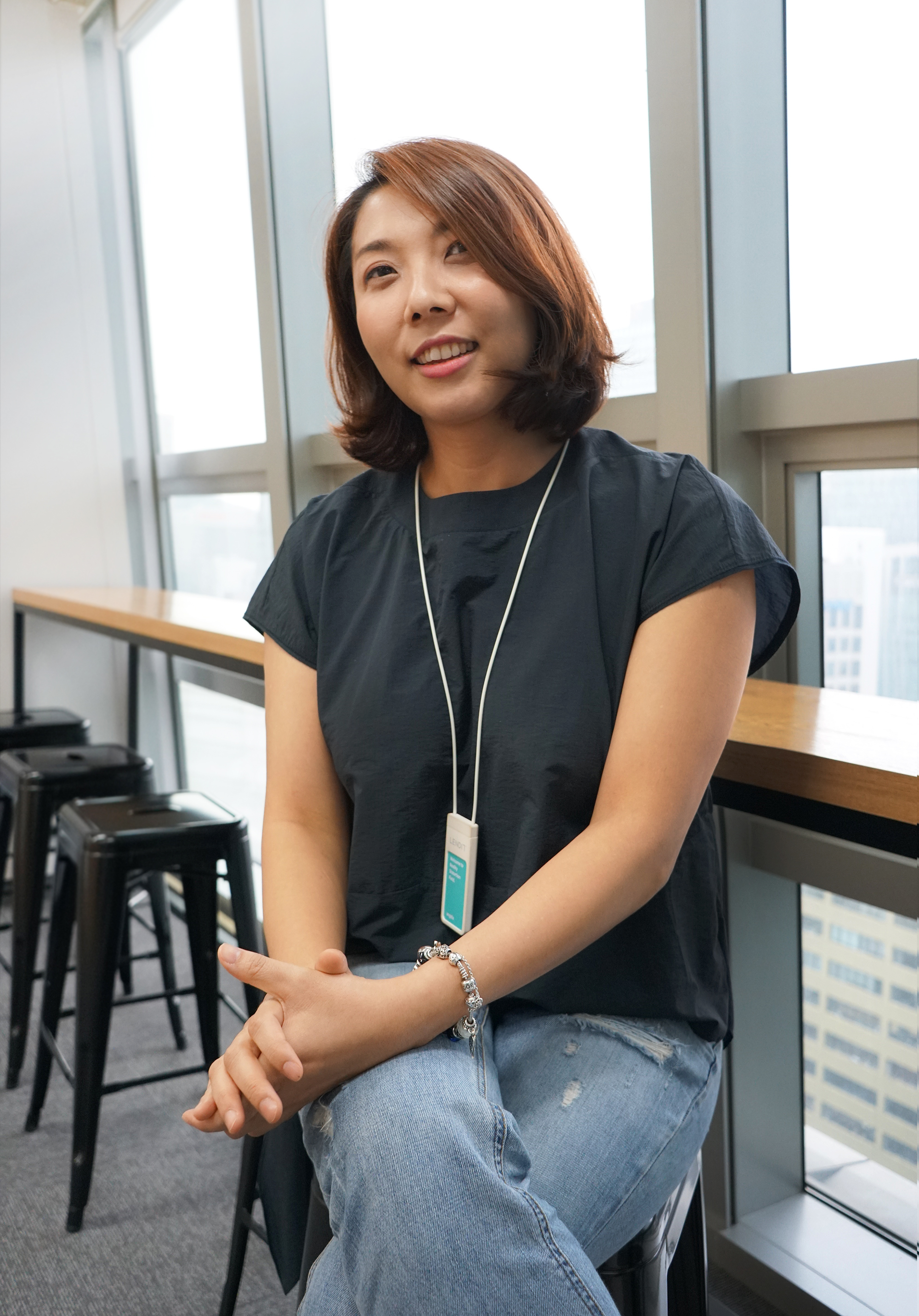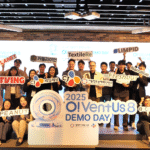
Lendit(렌딧)
Founder: Sungjoon Kim(김성준)
Founded in: 2015
Financing status: 2017-05-29, Series B, ₩ 10,000,000,000 from Altos Ventures, Yellow dog, Collaborative Fund
As the former vice president of Yogiyo, Angela Jihee Park(박지희) brought it from its first order to become one of the major delivery applications in Korea. She recently came back as the marketing director of P2P lending platform, ‘Lendit’. We met and interviewed Park, as one of the best performance marketers in Korea, and listened to her philosophy of ‘marketing that makes money’.
■ ‘Personal limitations’ led me to become a performance marketer
Platum: I heard you started your marketing career in the B2B industry
Park: Yes. When I joined my first job, internal corporate ventures were very popular. I was asked to join that department as soon as I started working in the company and the team culture was very unique since the team was made up of senior members from foreign companies. It was a mix of the stability of a large corporation and an efficient and adventurous culture. Usually, junior members in large conglomerates start with basic chores, but I had to work on random and broad tasks like a junior member in a startup company. I have gone through everything from building websites, working with consulting firms, and planning and executing B2B marketing projects.
Platum: After that, what made you move to the Intercontinental Hotel Group?
Park: When I was working in the second company–a foreign petrochemical company–I felt the limitations of B2B marketing. That is the reason for my transition to a hotel management company. I moved to the Intercontinental Hotel Group (IHG), which owns the world’s largest hotel chain, as a director for Korean online marketing. It is a big company but they didn’t have a branch office in Korea so I had to work alone. The company’s performance certainly improved after improving the website, expanding online contacts, and working on email solutions. But, at that time, there were very few online channels that could be utilized in Korea. When I felt there was not much to do, my senior manager in Singapore offered me the position of ‘head of performance marketing’ for Asia.
Platum: After that, you moved as the vice president for marketing. It was your first step in the startup industry. Can you tell me more about it?
Park: Yogiyo was a place where I could develop the skills that I accumulated as a performance marketer in the past. It was a pleasure to be involved in the growth process, from the moment we received the first order on the application to the moment it became one of the major delivery applications in Korea. But on the other hand, it was time for me to realize the limitations of performance marketing. It was too late when I realized that there is big synergy effect when a ‘brand’ is able to support performance marketing. The biggest reason for my transition to Lendit was because the CEO of the company, SJ Kim, had a very strong philosophy for the brand.
■ What is the correlation between ‘brand’ and ‘performance marketing’?
How can you separate brand marketing and performance marketing? Well-made branding doubles its effectiveness when performance marketing is executed, from 20% to as much as 4 times that. If there is trust to the brand, the influx from each marketing channel increases. For example, when you search a portal with keywords like ‘loan’ or ‘investment’, there are advertisements for various services. However, if you have a good impression of the brand called ‘Lendit’, you will click on the advertisement banner without knowing it yourself. The transition to the next stage will be much easier, and that is the power of branding. It is best when branding and performance marketing are both carried out by the same team. Even in the case of Lendit, the brand-marketing manager was directly under the CEO, not in the marketing team. However, I suggested that I would work with the brand-marketing manager in the same team. Without the brand, performance marketing cannot be powerful.
■ The first steps of performance marketing should be ‘keyword search ad’ and ‘Excel’
Platum: Due to the recent boom in performance marketing, there are many marketers in early stage startups who wish to incorporate this into their work. What would you recommend as the first step?
Park: Technically, you can test the principles of performance marketing through keyword search ads. As the keyword advertising has been a traditional marketing channel, the methodology for measurement and optimization has been somewhat standardized. Therefore, it is relatively easy to experience and study the technical and theoretical aspects of performance marketing. When I worked at IHG, there weren’t any good performance marketers in the industry and that’s why I recruited a ‘search engine marketer’ from a marketing agency. I thought I could teach the rest if that person had an understanding about ROI and was able to work on the optimization for different channels.
Platum: I saw you said in an interview that you “use Excel the most as a growth hacking tool”. Can you tell me more about that?
Park: I do not think any software is as well made as Excel. Of course, limitations exist, but the data used in marketing can be fully processed or diagrammed with Excel. Growth hacking is about maximizing your ability to grow as fast as you can. From this point of view, Excel is just as perfect, as it is accessible, open and capable of driving growth. I am not capable of using data analysis tools like SPSS or Hadoop. How can a startup use statistical tools or software that cost $20,000 per license? It even takes time and effort to learn how to use the software. I learned Excel from work. Answer comes out when I need it and when I am eager to learn. I think persistence is the most important factor.
■ Do you think every team member can become a performance marketer?
Many startups run their business with a single marketer. In other words, it is difficult to convince the executives of the necessity of performance marketing. However, there is nothing easier than persuading by giving a clear number. When the marketer sets the numerical goals and proves that she/he is working to achieve them, there will be no problem. If clear numbers cannot persuade the executives, I believe there is a problem in the organization. Of course, the numbers should match the company’s goal.
Platum: How can I verify that I set the right goal?
Park: In the end, it is unavoidable and it is top-down. Let’s suppose the company is aiming for USD 10 M in sales. It is important to check whether the goals set by individual marketers are necessary to achieve the company’s goals. When I ask my team members to come up with a plan, they only come up with a plan of ‘when, how, and what’ to do. Then I say I have not seen anything and send them back. I always ask them “What do you want to do with this work?” It is important to consider whether the results you will achieve are consistent with the direction of the company, the agenda that matters, and the ultimate goal that it has to achieve.
■ “My goal is to contribute to making another successful company”
Platum: What do you think are the key skills that a performance marketer should have?
Park: Patience. I think they should be physically strong as a marketer. Not only physical strength, but also strong mental stamina, which is important for working on something without getting frustrated. When you are persistent, you will be able to learn naturally.
Platum: What do you hope to achieve within Lendit this year?
Park: Currently, it is my goal to make the goal clear. Our CEO, SJ Kim, has already clarified what the company should accomplish. In order to achieve this, we are constantly pulling out the marketing indicators we should create. When I first joined the company, we only had 2 members in the team but now we have grown to 8 members. This year’s goal is to create a self-guided KPI that aligns with company’s goals and create a process for them to work on their own initiatives.
Platum: What is your personal goal as a performance marketer?
Park: Make another successful company. I came to Lendit to make another success story like Yogiyo. It will be possible with Lendit. Please look out for us.
(Photo from Platum)
————————————————————————————-
This article, entitled “Interview with Lendit’s Angela Jihee Park: When P2P service meets with digital marketing”, was written in Korean by Margot Jung of Platum, edited by AllTechAsia.






Leave a Comment